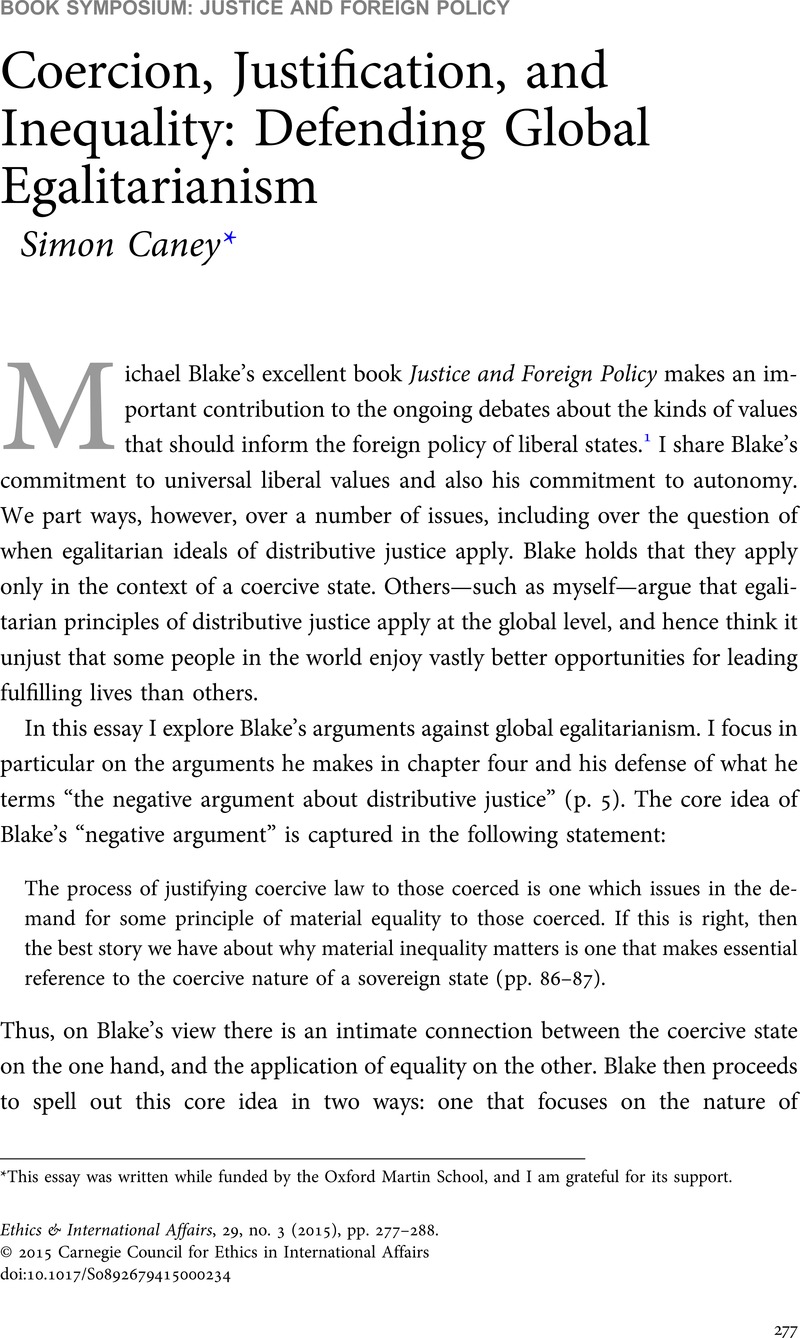Article contents
Coercion, Justification, and Inequality: Defending Global Egalitarianism
Published online by Cambridge University Press: 08 September 2015
Abstract

Information
- Type
- Book Symposium: Justice and Foreign Policy
- Information
- Copyright
- Copyright © Carnegie Council for Ethics in International Affairs 2015
References
NOTES
1 Michael Blake, Justice and Foreign Policy (New York: Oxford University Press, 2013). Future references to this work are inserted into the text.
2 In his illuminating contribution to this roundtable, Pablo Gilabert also notes both Blake's equivocation between what I have termed (C2) and (C3) and the failure of his arguments to yield (C3).
3 See G. A. Cohen's discussion of a certain kind of objection to utilitarianism (and in particular his discussion of “Objector B”) in his Rescuing Justice and Equality (Cambridge, Mass.: Harvard University Press, 2008), pp. 264–66.
4 This point is one that has often been made against Blake's earliest work on coercion (“Distributive Justice, State Coercion, and Autonomy,” Philosophy and Public Affairs 30, no. 3 (2001), pp. 257–96CrossRefGoogle Scholar). See, for example, Caney, , “Global Distributive Justice and the State,” Political Studies 56, no. 3 (2008), pp. 502–503 CrossRefGoogle Scholar; Gilabert, From Global Poverty to Global Equality: A Philosophical Exploration (Oxford: Oxford University Press, 2012), p. 172; and Moellendorf, Darrel, “Equal Respect and Global Egalitarianism,” Social Theory and Practice 32, no. 4 (2006), p. 606 CrossRefGoogle Scholar.
5 John Rawls, Political Liberalism (New York: Columbia University Press, 1993).
6 John Rawls, A Theory of Justice, Revised Ed. (Oxford: Oxford University Press, 1999), pp. 182, 207, 267, 249, and 303.
7 Sangiovanni, Andrea, “Global Justice, Reciprocity, and the State,” Philosophy and Public Affairs 35, no. 1 (2007), pp. 10–11 CrossRefGoogle Scholar.
8 As I have argued elsewhere, the same point applies to Sangiovanni's critique of global egalitarianism: See Caney, , “Humanity, Associations, and Global Justice: In Defence of Humanity-Centred Cosmopolitan Egalitarianism,” Monist 94, no. 4 (2011), pp. 516–17CrossRefGoogle Scholar. The point goes back to Shue, Henry, “The Burdens of Justice,” Journal of Philosophy 80, no. 10 (1983), pp. 603–606 CrossRefGoogle Scholar.
- 2
- Cited by

